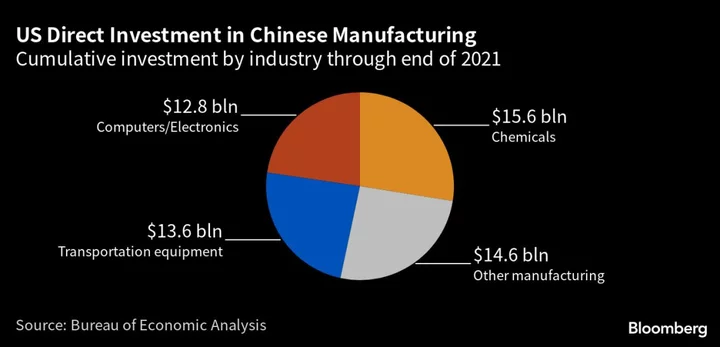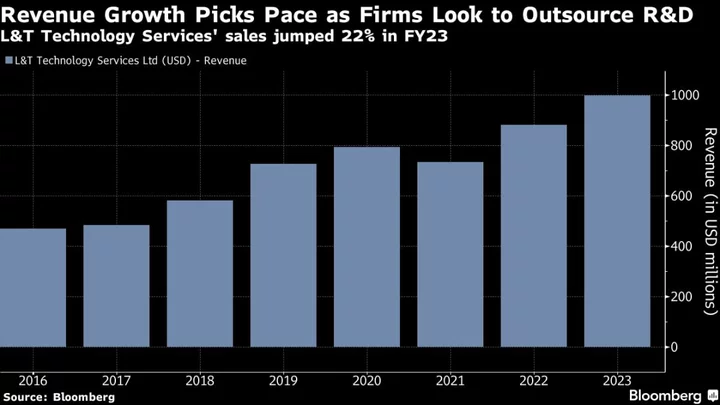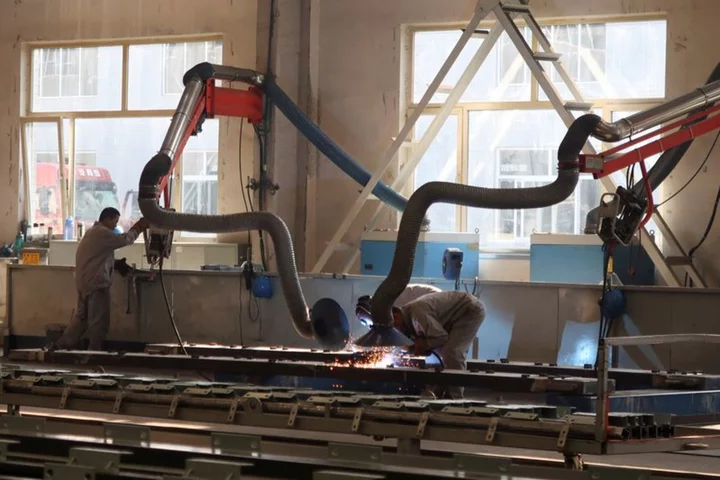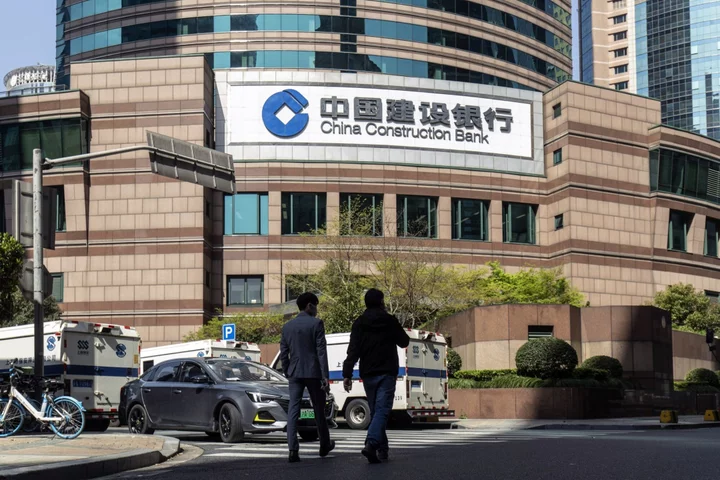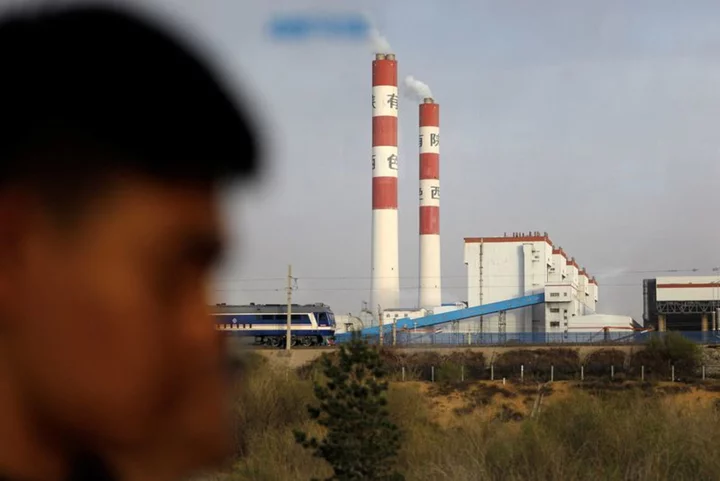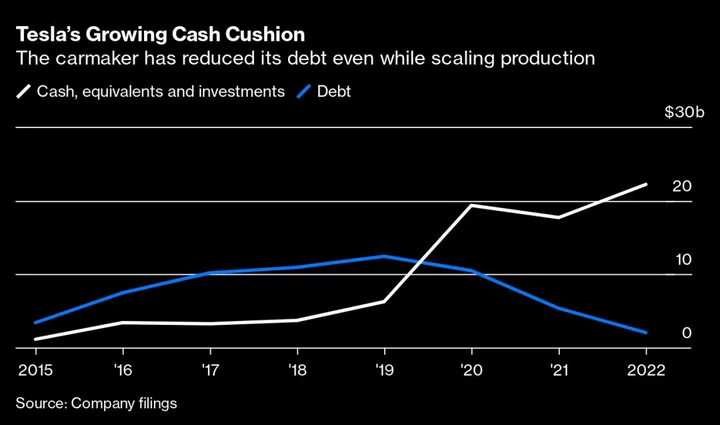Group of Seven nations aim to send a signal to China this month by announcing a joint effort to counter “economic coercion,” even as they struggle to agree on more than a broad statement of intent.
While member states want to better coordinate their responses to China’s economic practices, signing off on tangible measures is proving more complicated, according to people familiar with the discussions. Officials are still wrangling over how tough to be in their messaging to China, particularly on specific tools that could be deployed against it.
The US has advocated for other G-7 nations to take stronger positions on Beijing when leaders meet next week in Hiroshima, the people added, but European countries would prefer to focus on coordination and general warnings against coercive behavior. A White House spokesperson declined to comment.
The debate reflects the dilemma facing the US, Europe and China’s neighbors like Japan on how to deal with China’s growing economic clout when their supply chains remain so interlinked with the world’s second-biggest economy. G-7 nations are all dependent in some fashion on Chinese goods in key areas and there is a consensus on the need to test the resilience of supply chains, the people said.
Leaders are likely to hold a private discussion about China in Hiroshima and it will be central to a standalone document on economic security as well as talks on trade and foreign policy.
The proposed “platform on economic coercion” would allow G-7 countries to coordinate their actions in areas including trade and investment restrictions, boycotts and threats such as cyber attacks, the people said.
But such a mechanism is unlikely to include an automatic response to hostile economic actions, the people said, asking not to be identified discussing sensitive matters. European members in particular oppose the idea of preordained counter-measures.
What joint action might be possible will depend on individual circumstance, the people said. They added there’s a spectrum of measures China has taken, ranging from targeting specific companies to enacting total trade boycotts.
Despite the pre-summit wrinkles, the US and Europe do show signs of moving closer to each other on their China policies. The US language appears to be shifting, as officials start to adopt the phraseology of “de-risking” without “decoupling” that European officials now use. That’s in part a nod to the European caution and to show the US recognizes the complexities involved in formulating policy across multiple countries, the people said.
At the same time, the European Union position on China has hardened since the Covid pandemic and Russia’s war in Ukraine exposed risky supply chain dependencies, with the bloc looking to mitigate those risks as well as put limits on several exports that could be used for military purposes.
German Chancellor Olaf Scholz this week accused China of increasingly acting as a rival and competitor. He said European nations should not aim for an immediate decoupling from China, but implement a “smart de-risking.” And Italy has signaled to the US that it intends to pull out of a controversial investment pact with China before the end of the year.
Chinese Foreign Minister Qin Gang said on Tuesday he was concerned with even the notion of de-risking. Speaking at a briefing with German counterpart Annalena Baerbock, he said it could equate to “de-Sinicization,” according to the official Xinhua News Agency.
President Joe Biden plans to limit investment in China’s economy by American businesses, and has hoped for an endorsement from other G-7 countries, although they aren’t expected to announce similar restrictions at the same time, Bloomberg previously reported.
Some European nations prefer to focus on language about the risks to companies putting money into China, while boosting information exchanges about screening foreign investments, the people familiar with the discussions said.
Ahead of the summit, some G-7 embassies have been instructed to map out China’s influence in a number of countries around the world, including their vulnerability to economic coercion. The efforts have focused on countries in Africa and Latin America, alongside central and Southeast Asia that the G-7 is looking to step up engagement with.
There are also exchanges between the US and European allies on countering a push by some governments to require foreign companies to share their technology with the state, another policy area tacitly focused on China.
Concerns about the impact of potential Chinese activity in Taiwan on global supply chains have been a further talking point in pre-summit discussions.
The leaders are expected to reaffirm their opposition to any forced change to the status quo in the Taiwan Strait. The summit comes weeks after French President Emmanuel Macron came under fire for saying Europe shouldn’t be dragged into a conflict over Taiwan between the US and China. He and others in his government have since clarified the French position to align with G-7 support for Taiwan.
--With assistance from Michael Nienaber, Chiara Albanese and Jordan Fabian.
Author: Alex Wickham, Alberto Nardelli and Jenny Leonard

